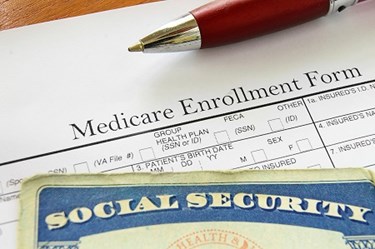CMS, FDA Encourage Inclusion Of UDIs In Insurance Claim Forms

The Centers for Medicare and Medicaid Services (CMS), the FDA, and some members of Congress have advocated the inclusion of unique device identifier (UDI) numbers on insurance forms, including those used by Medicare. Leaders from both agencies say that collecting the data at the model level will help make medical devices safer, but industry advocates argue that the move is not financially feasible at this time.
Senators Elizabeth Warren (D-Mass.) and Charles Grassley (R-Iow.) received a letter from Health and Human Services (HHS) Inspector General Daniel Levinson, in which he reported that Medicare was losing billions of dollars each year due to recalls of faulty devices and that amount could be reduced with more effective post-market surveillance, reported the Regulatory Affairs Professionals Society (RAPS).
In response, acting Administrator for CMS Andrew Slavitt and FDA Commissioner Robert Califf addressed a letter this week to the Accredited Standards Committee X12 (ASC X12), which was appointed to develop new claims forms by December of 2016, echoing claims made by Levinson. According to Slavitt and Califf, UDI numbers would allow researchers to study device performance over time, quickly identify safety issues associated with the device, and allow payers to calculate value-based reimbursement.
Slavitt and Califf acknowledged in the letter that the request is “complex” and would require providers and payers to modify their workflows and processing systems, which is likely to be expensive. Medicare, as well, would require a significant upgrade in its legacy computer systems.
The Advanced Medical Technology Association (AdvaMed) remarked that it supports the inclusion of the UDIs, but thinks the process merits further analysis to see if it is practical, reported the Wall Street Journal (WSJ).
HHS Secretary Sylvia Burwell told Politico that the process is likely to cost around $300 million initially, with further costs later on. Politico reported that Burwell was not clear on the timing for the change.
“HHS is committed to collecting the UDIs on claims in a timeline that reduces the impact on state Medicaid agencies, small physician practices, and hospitals in rural areas,” said Burwell. “Stakeholder education and outreach…is critical to making this implementation successful.”
Robert Hauser, a cardiologist at the Minneapolis Heart Institute, told the WSJ that the change would “make a huge difference” in helping clinicians know when devices have been recalled and tracking devices that already have been implanted.
Califf recently co-authored an article published in the Journal of American Medical Association (JAMA) that supports the creation of a National Evaluation System for Health Technology (NEST), which he and co-author Jeffrey Shuren wrote would address the “key dilemma” of device regulation: balancing timely access with safety. Establishment of NEST, which was started in 2012, would help regulators and manufacturers with postmarket studies and give clinicians a space to report adverse events. In order to be practical, the authors wrote, all healthcare stakeholders — from payers, to hospitals, to manufacturers — would have to share data and funding to build a system in which they all would benefit equally.
“A national evaluation system that engages all stakeholders could enable the FDA to focus efforts on facilitating the development and interpretation of more informative data essential for policy making and clinical decisions for individuals and populations,” they wrote.
